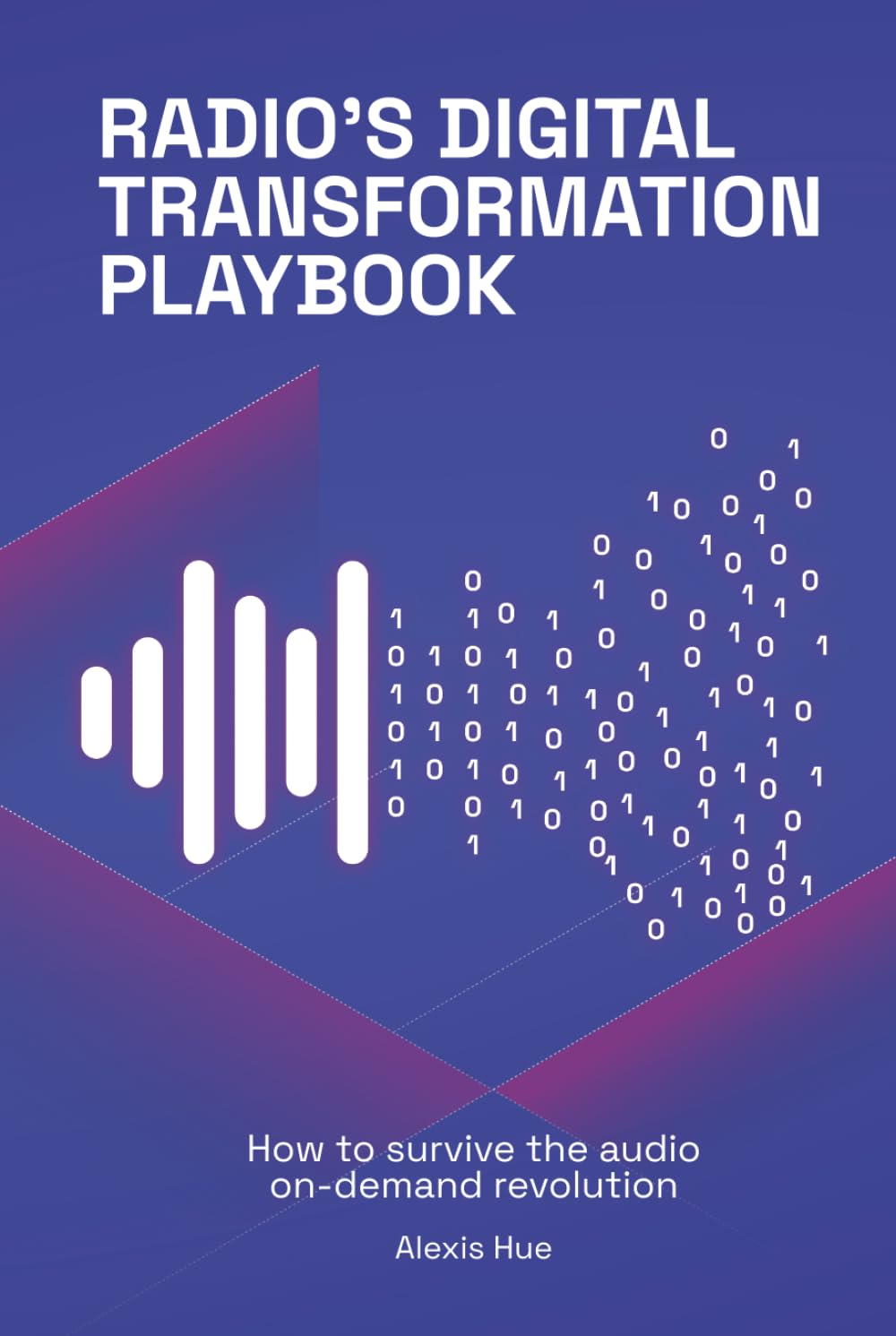
Radio isn’t dead. But it must transform. Fast.
While traditional radio still reaches millions, younger audiences are tuning out, listening habits are shifting, and advertising dollars are following them to digital environments built for the on-demand age. New formats, new platforms, and rising expectations are already reshaping the audio landscape.
That’s not a reason to despair. It’s a reason to act.
Radio’s Digital Transformation Playbook is a practical guide to navigating this seismic shift. This book offers a clear, actionable path for radio leaders ready to move beyond legacy thinking, compete with digital-native platforms, and embrace what digital truly demands.
What You’ll Learn
-
✅ Why digital transformation stalls in most radio teams – and how you fix it
-
✅ A proven 8‑pillar framework to assess your digital maturity
-
✅ How to use startup‑style experimentation in a radio context
-
✅ Fresh audience growth strategies inspired by Spotify and Netflix
-
✅ New content formats that align with on‑demand habits
-
✅ Real-world case studies, templates, and practical tools
Who This Book Is For
This playbook is ideal for:
-
🎧 Public & commercial radio executives
-
📱 Digital, content, and product leaders
-
🎙️ Transformation teams in media companies
-
💼 Consultants, trainers, and industry educators
Whether you’re starting your digital journey or deepening your transformation, this book delivers actionable insights to move forward with confidence.
Inside the Book
Take a peek at some pages from the Playbook
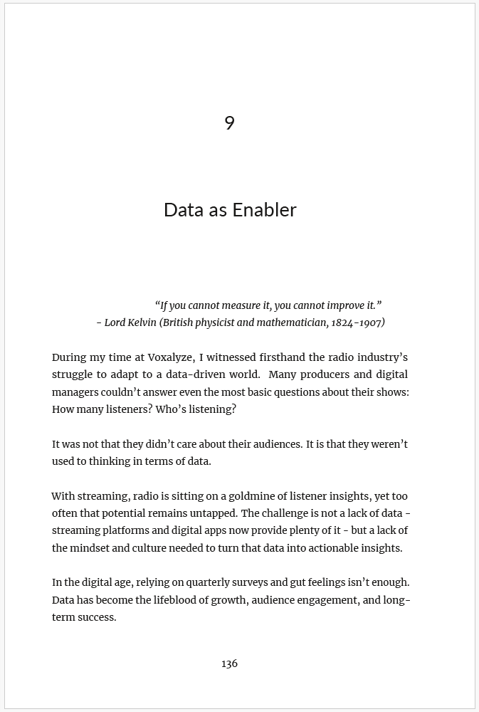
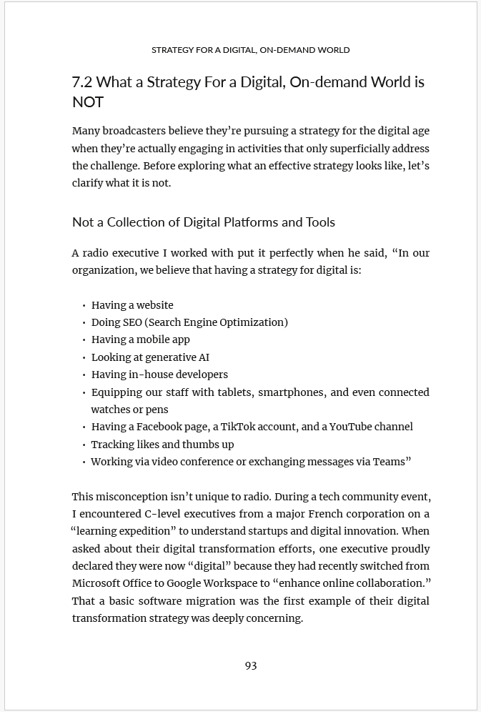
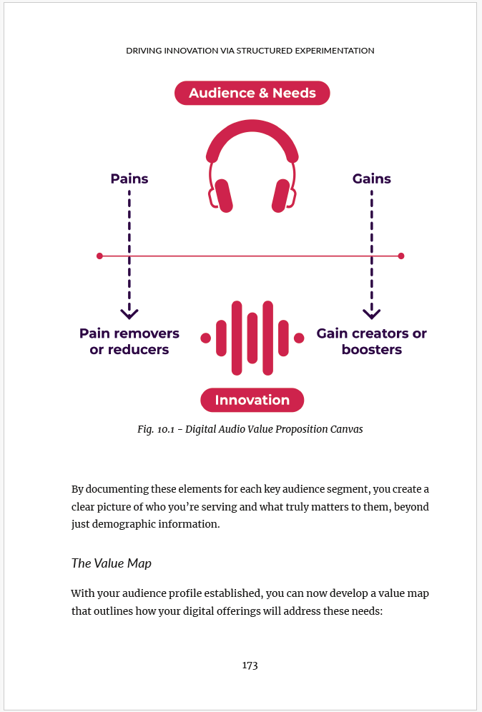
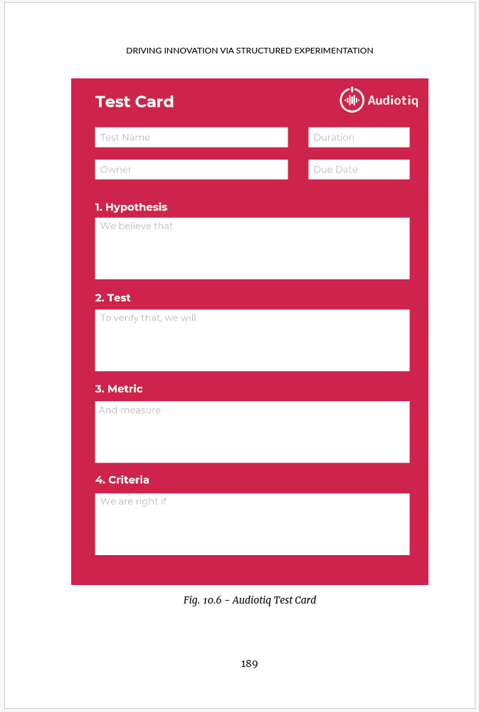
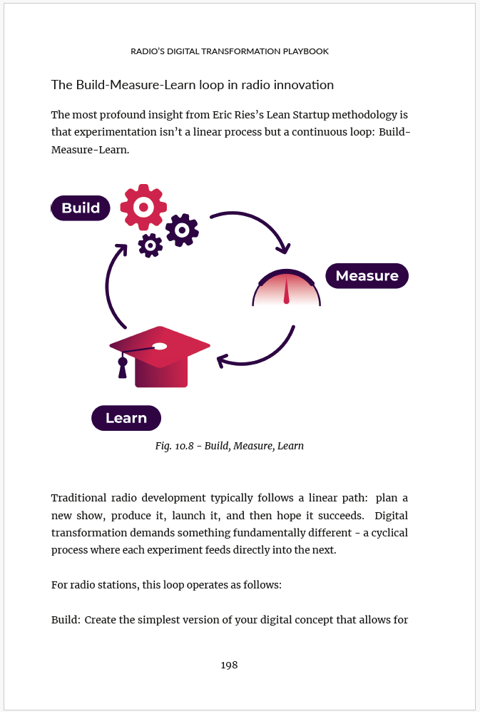
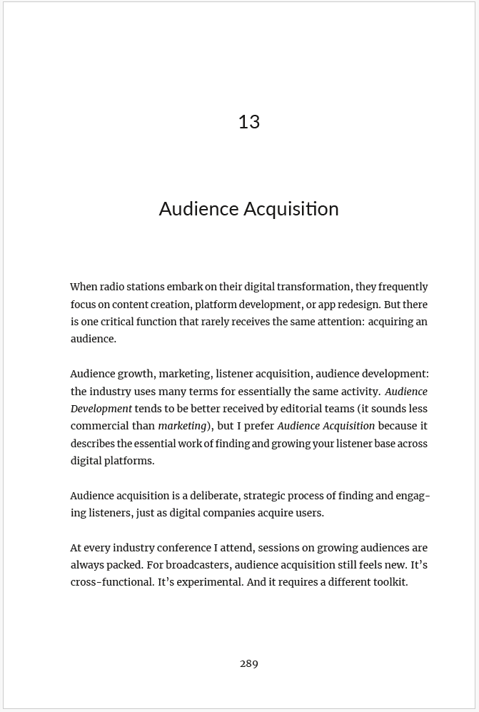
The first two chapters are available for free on Amazon.
Why This Book

Over the past few years, I have had the privilege of working with media companies of every size, from local stations to global public broadcasters, as they try to make sense of the digital shift. I have listened to anxious teams, debated with executives, and helped decision-makers wrestle with content and platform choices, audience acquisition, and monetization strategies. And I have seen the same patterns repeat themselves.
There is real passion, without a clear direction. There is a lot of activity, but the strategy is not always clear. There is a deep love for radio, its intimacy, its voice, its cultural role, yet real confusion about how to adapt to an on-demand, digital-first world. Everyone knows something is changing. But what can be done about it exactly? That is where things get blurry.
This book was born out of those conversations.
I’m not a lifelong radio executive: I come from the world of startups, tech companies, and venture capital. I have built and scaled companies, supported founders with bold visions, served on the boards of startups, and mentored teams at incubators and innovation labs.
And again and again, I found myself asking: why haven’t the tools, methods, and mindsets that are second nature in tech made their way into radio?
Radio cannot afford to sit on the sidelines of the digital revolution. It must stop treating digital as a secondary channel or a reluctant add-on. It must dare to leave its comfort zone, to experiment with new formats, new ways of telling stories, and new modes of distribution. This transformation does not mean letting go of its identity: it means re-imagining how that identity lives in a platform-first, attention-fragmented world.
That is why I wrote this book: to offer the playbook radio needs to move to the next chapter of its long history.
Radio’s Digital Transformation Playbook is not just about surviving. It is about thriving, about using the unique strengths of radio, its trust, its presence, its voice as a foundation for building something new. Because this is not the end of radio, but it is the end of pretending that radio can continue unchanged.
Yes, radio still reaches millions. But behind the aggregate figures, the signs are clear: younger audiences are tuning out, listening frequency is declining, and engagement is drifting to other platforms. The writing is on the wall.
You can debate the pace. You can question the platforms. But you cannot ignore the change.
I don’t believe radio is doomed. But I do believe it deserves better than denial. It deserves a strategy. A plan. A playbook.
